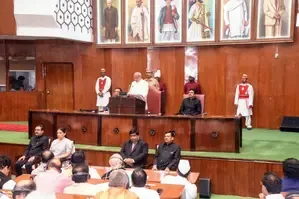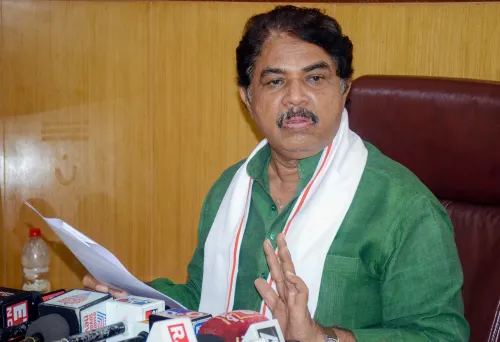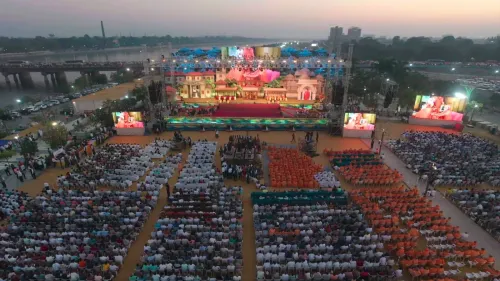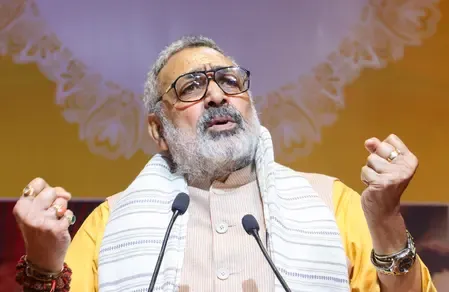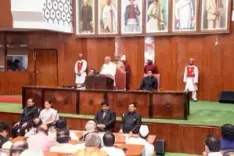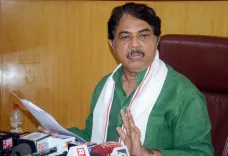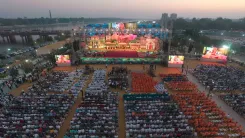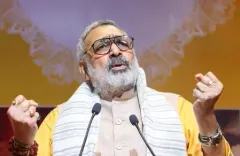How is Delhi Speaker Vijender Gupta Showcasing India's Role as 'Vishwaguru'?
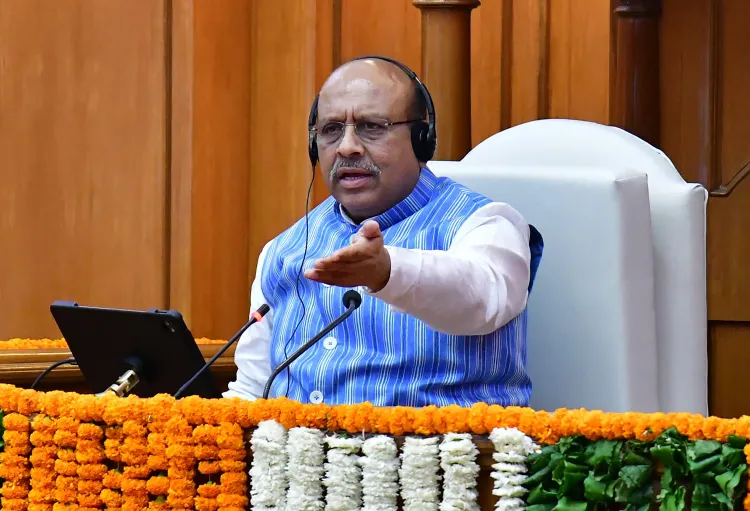
Synopsis
Key Takeaways
- India's identity is rooted in the values of peace and non-violence.
- The World Peace Centre aims to foster global dialogue.
- Historical figures like Mahatma Gandhi inspire modern peace initiatives.
- India promotes cooperation through educational exchanges.
- Vasudhaiva Kutumbakam signifies global unity.
New Delhi, Aug 31 (NationPress) The Speaker of the Delhi Assembly, Vijender Gupta, on Sunday underscored India's significance as a 'Vishwaguru' (World Teacher), asserting that the essence of India's identity is profoundly anchored in the principles of peace and non-violence, as articulated in the teachings of Lord Mahavira, Lord Buddha, and Mahatma Gandhi.
While speaking at the inaugural International Symposium on 'World Peace, Harmony, and Peace Education' at the newly inaugurated World Peace Centre, Gupta stated, "Peace is the genuine pathway for humanity, while non-violence stands as its greatest asset."
This seminar, organized by Ahimsa Vishwa Bharti under the leadership of Acharya Lokesh Muni, gathered distinguished figures from both India and abroad to discuss matters concerning global peace, harmony, and the impactful role of peace education.
Gupta remarked, "India's narrative is one of peace and non-violence. Lord Mahavira declared, 'Ahimsa is the highest religion'; Lord Buddha envisioned a continent unified in compassion, and Mahatma Gandhi demonstrated that even the mightiest empires could be vanquished through truth and non-violence. Prime Minister Narendra Modi has revitalized this legacy on global platforms."
He recounted how, during the Russia–Ukraine conflict in 2022, the Prime Minister articulated at the United Nations, G20, and BRICS, "This is not an era of war, but a period for peace, stability, and collaboration.’ India has conveyed the essential message that the future lies in peace, not in conflict."
The Speaker congratulated Acharya Lokesh and Ahimsa Vishwa Bharti for establishing the first-ever 'World Peace Centre' in India and celebrated the momentous occasion of hosting the inaugural symposium in its new auditorium.
Gupta brought attention to the forthcoming partnership between the World Peace Centre and Stanford University, which is set to enhance educational and cultural exchanges, propagating the message of Vasudhaiva Kutumbakam - the world is one family - across all borders.
He emphasized that such collaborations demonstrate that humanity’s challenges are resolved not through warfare but rather through cooperation, dialogue, and mutual respect.
Gupta expressed optimism that the inception of the World Peace Centre would illuminate the path for fostering dialogue, understanding, and collaboration on a global scale.
He affirmed that initiatives of this nature not only solidify India's stature as a leader in peace diplomacy but also motivate the world to embrace the tenets of non-violence and harmony in tackling current challenges.


